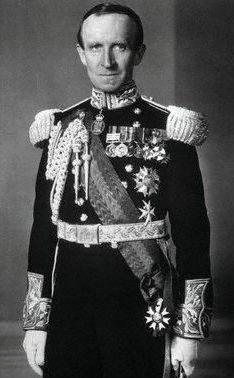“[On the newspapers of the Craw Press:] Their politics are an opiate to prevent folk thinking.”
Źródło: Castle Gay (1930), Ch. 3
John Buchan, 1. baron Tweedsmuir – szkocki pisarz i polityk, w latach 1935-1940 gubernator generalny Kanady. Wikipedia

“[On the newspapers of the Craw Press:] Their politics are an opiate to prevent folk thinking.”
Źródło: Castle Gay (1930), Ch. 3
"A University's Bequest to Youth" (10 October 1936)
Canadian Occasions (1940)
Źródło: The Power-House (1916), Ch. 1 "Beginning of the Wild-Goose Chase"
Źródło: Salute to Adventurers (1915), Ch. 28 "How Three Souls Found Their Heritage"
Źródło: The Power-House (1916), Ch. 3 "Tells of a Midsummer Night"
Źródło: The Path of the King (1921), Ch. XIV "The End of the Road", II
Źródło: Salute to Adventurers (1915), Ch. 16 "The Ford of the Rapidan"
Źródło: A Lodge in the Wilderness (1906), Ch. X, p. 272
“Her voice had a thrill in it like music, frosty music.”
Prologue
Huntingtower (1922)
"A University's Bequest to Youth" (10 October 1936)
Canadian Occasions (1940)
Źródło: The Path of the King (1921), Ch. VIII "The Hidden City"
“There may be Peace without Joy, and Joy without Peace, but the two combined make Happiness.”
Pilgrim's Way (1940), p. 117
Memory Hold-The-Door (1940)
Źródło: The Path of the King (1921), Ch. XIV "The End of the Road", II
“Perfect love casteth out fear, the Bible says; but, to speak it reverently, so does perfect hate.”
Źródło: Prester John (1910), Ch. IX
“It was a very happy time, but like all happy times it had no landmarks.”
Źródło: A Lodge in the Wilderness (1906), Ch. X, p. 268
“I always try to suit my clothes to my company. It is the only way to be inconspicuous.”
Prologue
The House of the Four Winds (1935)
“Peace is that state in which fear of any kind is unknown.”
Pilgrim's Way (1940), p. 117
Memory Hold-The-Door (1940)
Pilgrim’s Way (1940)
Memory Hold-The-Door (1940)